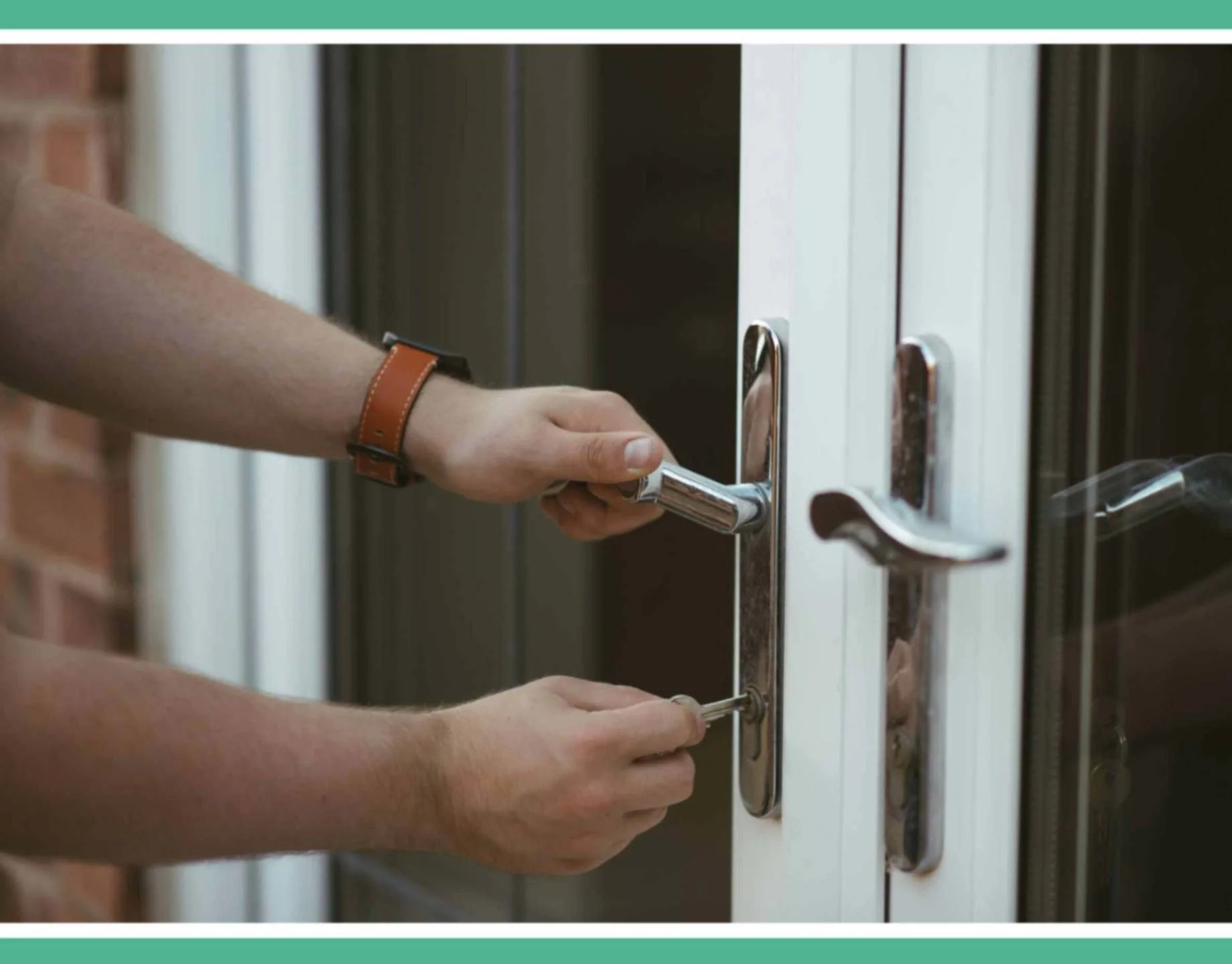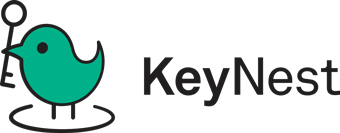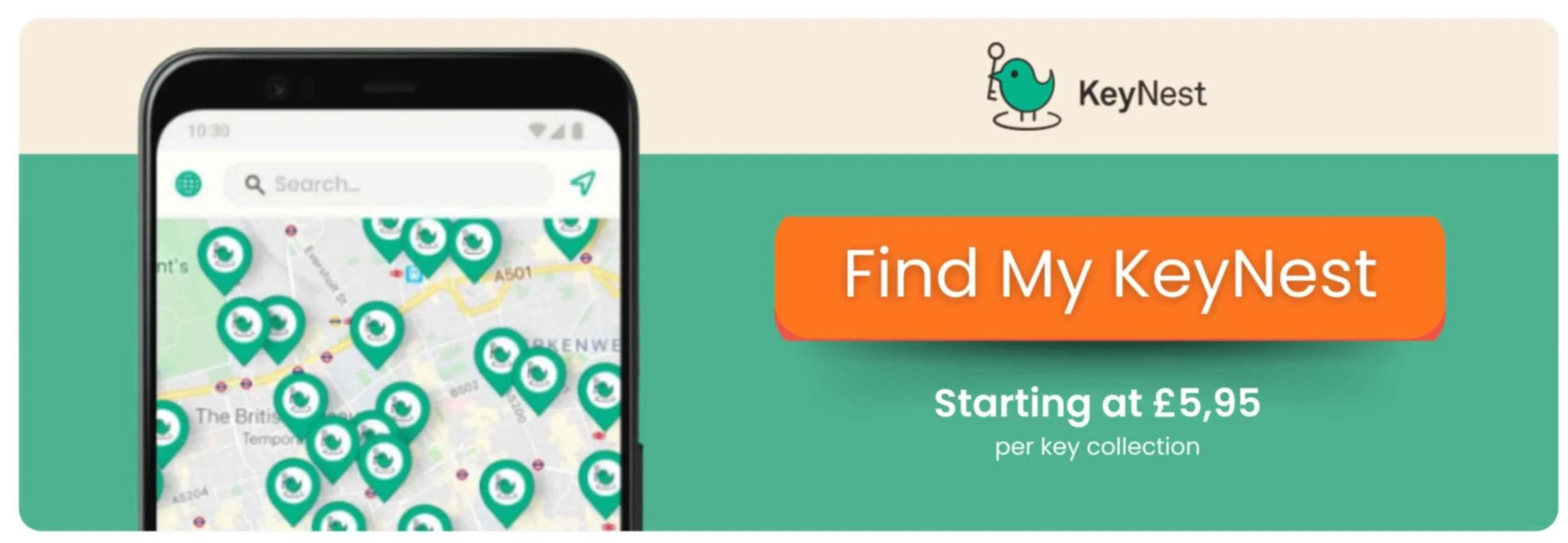Over 1500 key exchange locations nationwide
Airbnb Self Check-In Process: What Airbnb Hosts Need To Know?
In the ever-evolving landscape of short-term rental property, convenience and efficiency have become crucial for both rental hosts and guests. Implementing self check-in options is a game-changer that allows guests to access properties without the need for face-to-face interactions, save time by offering flexibility for late-night arrivals or unexpected schedule changes. Many hosts wonder whether this feature is truly worth the investment and how the contactless Airbnb check-in process can impact their pricing and overall business strategy.
By adopting contactless check-in and check-out, hosts can attract a broader range of guests, including business travelers and those who prefer independent check-in experiences. This feature often translates into enhance the guest experience resulting to higher guest satisfaction and increased bookings, potentially boosting revenue. However, it's essential to weigh the benefits against security concerns and initial setup costs. Understanding the market trends and guest preferences can help you make an informed decision.
In this article, we’ll examine the key advantages, potential pricing changes, guest expectations, and essential security considerations associated with self check-in. By analyzing these factors, you can determine whether this modern solution fits your hosting goals and provides a competitive edge in the short-term rental market in have access to the property. Stay tuned as we reveal the facts and figures behind self check-in for Airbnb hosts.
Benefits Of Self Check-In For Airbnb Guests & Hosts
Self check-in offers several advantages making hosting more convenient and efficient. It allows guests to access the property independently, reducing the need for face-to-face interactions. This flexibility enables hosts to manage their time better and focus on other aspects of property management.
Additionally, it caters to travelers with varying schedules hoping to improve your guest satisfaction.
Increased booking potential: Properties contactless check-in process often attract more bookings due to guest flexibility.
Convenience for hosts: Eliminates the need for in-person handing of keys to your rental property by adding check-in instructions for your guests.
Guest satisfaction: Guests appreciate the ease and flexibility of accessing your vacation rental property on their own.
Reduced operational costs: Minimizes the need for hiring property managers for Airbnb check-ins.
Time efficiency: Saves valuable time for hosts, allowing them to manage multiple properties.
Positive reviews: Enhanced guest experiences can lead to better reviews.
Competitive edge: Properties with self check-in often rank higher in search results.
These benefits underscore why many hosts are adopting self check-in options to streamline operations and enhance guest experiences.
How Airbnb Self Check-In Can Impact Pricing On Vacation Rental
Implementing self check-in can significantly affect an Airbnb host’s pricing strategy. These features not only refine the self-check-in process but also makes listings more appealing potentially justifying higher rates.
Hosts often see increased bookings and revenue by catering to travelers who prioritize flexibility.
Premium pricing: Properties with self check-in may charge higher rates due to added convenience.
Higher occupancy rates: Flexible check-in options attract more guests, leading to better booking rates.
Dynamic pricing adjustments: Automated pricing tools may recognize the value of self check-in and adjust rates accordingly.
Enhanced marketability: Listings with self check-in appeal to a broader audience.
Reduced cancellation rates: Guests are less likely to cancel when they know check-in is hassle-free.
Long-term financial benefits: The initial investment in self check-in technology pays off over time.
Increased profitability: The combined impact of higher rates and increased bookings boosts revenue.
Understanding these pricing dynamics can help you optimize your listing and maximize profits.
Guest Expectations & Self Check-In Experiences On Short-Term Rentals
Guest expectations have shifted, with self check-in becoming a preferred option for modern travelers. Many guests value the flexibility and convenience of accessing properties on their own schedule.
This feature is particularly appealing to business travelers and those with late-night arrivals. Meeting these expectations can significantly enhance guest satisfaction and attract more bookings.
Flexibility: Guests want the freedom to check in at any time.
Seamless experiences: Smooth check-in processes enhance overall guest satisfaction.
Clear instructions: Guests expect detailed, step-by-step check-in guides.
Digital communication: Hosts should be available via messaging apps to assist guests.
Trust in technology: Guests need to feel confident that self check-in systems are secure and reliable.
Personalized touches: Despite self check-in, adding a personal welcome note can elevate the experience.
Feedback opportunities: Encourage guests to share their experiences to improve future check-ins.
Meeting these expectations can help hosts deliver a memorable and hassle-free guest experience.
Security & Safety Considerations For Airbnb Self-Check-In
Implementing self check-in requires careful planning to maintain property security and guest safety. Using secure key storage solutions or smart locks helps control property access and protect against unauthorized entry.
It's crucial to regularly update access codes and communicate safety protocols to guests clearly. Proper planning ensures a safe and seamless experience for both hosts and guests.
Using A Smart lock installation: Use high-quality smart locks for secure access.
Access code management: Change access codes regularly to prevent unauthorized entry.
Surveillance systems: Install security cameras in common areas to monitor activity.
Clear communication: Inform and provide clear instructions to guests about security protocols and send separate check-in message instructions to your guests.
Emergency contact information: Provide guests with emergency numbers and instructions.
Guest verification: Use Airbnb’s identity verification feature to vet guests and have a secure check-in process to inform your guests to arrive.
Data privacy: Protect guest information and access codes on managing many rentals while you automate the process.
By addressing these security concerns, you can offer self check-in while keeping your property safe.
Tools & Technology To Automate Your Check-In Process
Various tools and technologies enable hosts to implement self check-in smoothly. Smart lock access, digital keypads for smart lock code, key lockbox and key exchange services like KeyNest offer secure and convenient solutions.
Mobile apps also allow remote access management and monitoring. These options enhance guest experiences while simplifying check-in logistics with everything you need to know as hosts on where are you keys currently.
Smart locks: Brands like August, Yale, and Schlage offer reliable options.
Key lockboxes: Secure lockboxes provide an affordable alternative to smart locks.
Automated messaging systems: Tools like Hospitable and Guesty streamline communication.
Property management software: Comprehensive solutions help manage multiple listings.
Access code generators: Automatically generate and manage access codes.
Integration with Airbnb: Sync check-in instructions directly with Airbnb reservations.
Mobile apps: Allow hosts to monitor and control access remotely.
These tools make it easier to provide a seamless and secure self check-in experience for guests.
Is Self Check-In Worth It For You?
Deciding whether to offer self check-in depends on your hosting goals and property management style. It can provide convenience and flexibility for guests, but may not suit every type of property.
Consider factors like guest experience, property size, and security when making your decision. Self check-in can be a valuable option, but it's important to assess if it aligns with your needs.
Property type: Self check-in is ideal for apartments and standalone properties.
Guest demographics: Business travelers and tech-savvy guests prefer self check-in.
Operational efficiency: Hosts managing multiple properties benefit greatly.
Initial investment: Weigh the cost of implementing self check-in against potential revenue.
Guest reviews: Positive reviews for seamless check-in can boost your listing’s visibility.
Competitive market: Evaluate whether competitors offer self check-in.
Personal preferences: Consider your comfort level with automated processes without waiting for your guests to hand over keys.
Weighing these factors will help you determine if self check-in aligns with your hosting strategy.
Unlock The Potential Of Self Check-In For Airbnb Success
Self check-in is more than just a convenience—it’s a game-changer for Airbnb hosts looking to optimize their operations and enhance guest experiences. By offering flexible check-in options, you can attract a broader range of guests and increase your booking rates. Implementing self check-in also allows you to manage your property more efficiently, freeing up time for other important tasks.
The right tools and technologies make the transition seamless, while security measures ensure peace of mind. Understanding guest expectations and maintaining clear communication are key to delivering a smooth experience. While there may be initial costs, the long-term financial benefits are worth the investment. Evaluating your property type, market competition, and hosting style will help you decide whether self check-in is the right fit.
Embrace this modern solution to stay competitive and elevate your hosting game. Ultimately, self check-in can be a valuable addition to your Airbnb strategy, driving both guest satisfaction and business success.
About Us
KeyNest offers you a convenient service for storing and exchanging your property keys. You can drop off a key at any of the 7,000+ locations in our network, so there’s one such Point located next to your property.
Guests, cleaners or contractors can then collect the key securely from a KeyNest Point or KeyNest Locker which is usually open 24/7. You'll be notified each time the key is picked up or returned, and you can even customize check-in and check-out times. By leveraging technology and a global network of locations, KeyNest continues to redefine property management, offering solutions tailored to meet the evolving needs of the rental market..
KeyNest has an ever-expanding global network of locations located just minutes from your property. To find out more you can contact us.
Neil Beltran 4 February 2025



